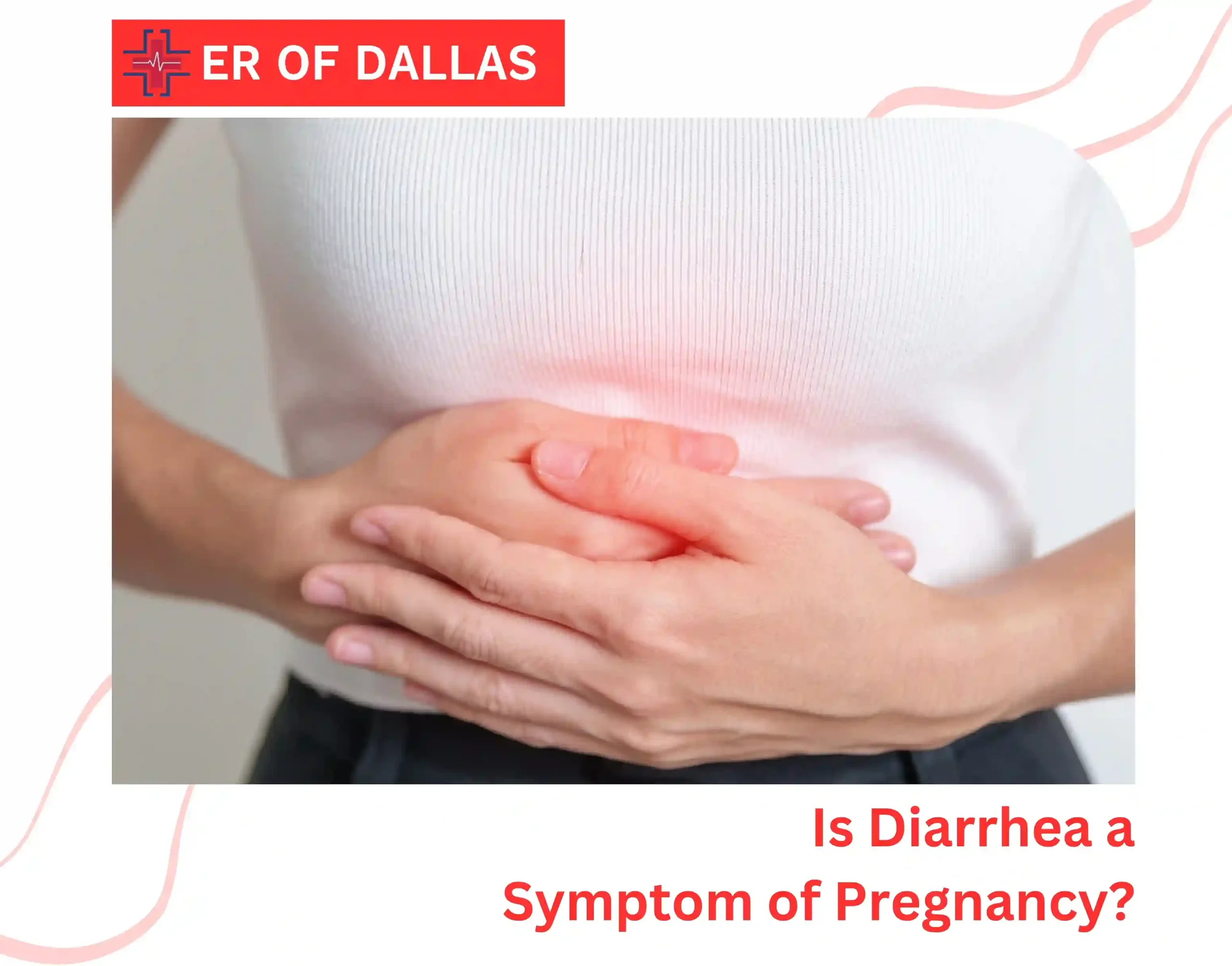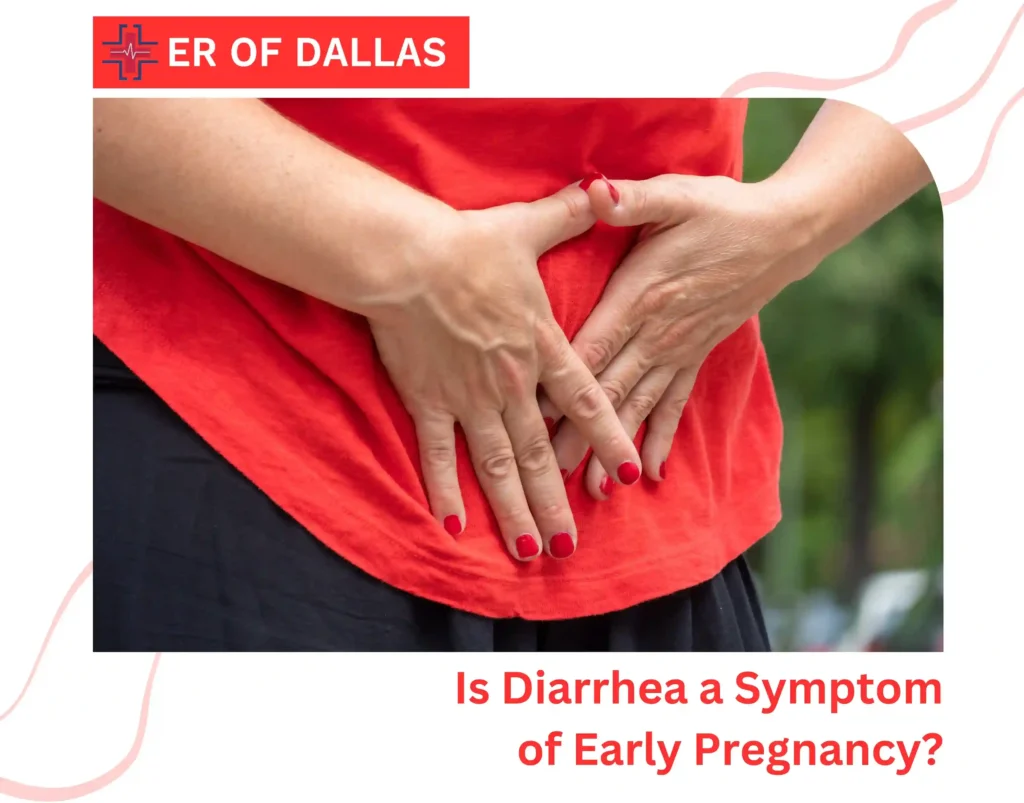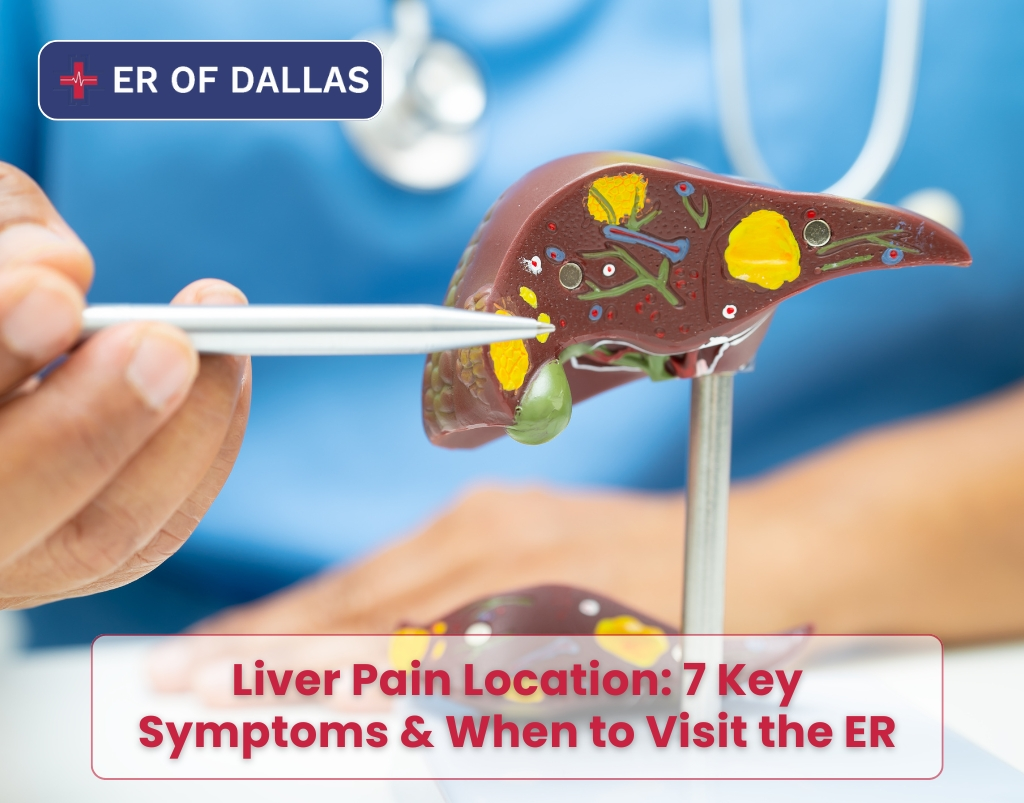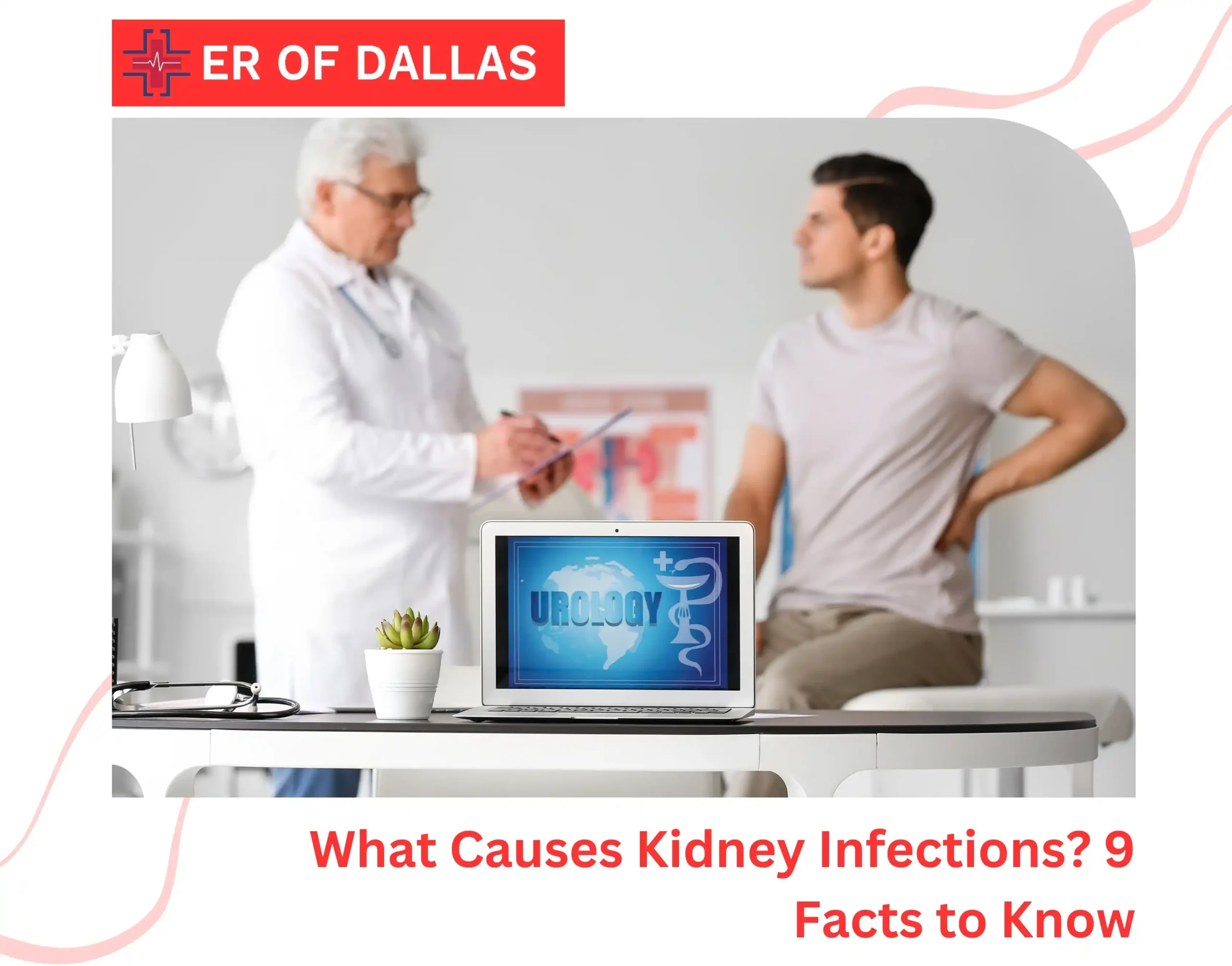From morning sickness to food cravings, pregnancy brings unexpected changes to your body. Among these changes, gastrointestinal symptoms like diarrhea might occur. Like many expectant mothers, you might find yourself asking “is diarrhea a symptom of pregnancy?”
While not as commonly discussed as nausea and fatigue, digestive conditions can significantly impact your pregnancy journey. Let’s explore which changes are normal and which require a trip to the emergency room.
Is Diarrhea a Symptom of Early Pregnancy?
Diarrhea itself isn’t a recognized sign of early pregnancy, unlike common symptoms such as nausea, fatigue, or missed periods. However, you might experience diarrhea during early pregnancy due to hormonal changes that affect your digestive system. Increased levels of progesterone, which relaxes muscles, may impact the intestines, causing either constipation or diarrhea in early pregnancy.
Changes in diet, prenatal vitamins, or increased sensitivity to certain foods can also trigger diarrhea in the first trimester. As a result, while diarrhea isn’t a sure sign of pregnancy, it’s worth mentioning to your healthcare provider if you experience it alongside other actual pregnancy symptoms.
Diarrhea While Pregnant: Causes and Remedies
Experiencing diarrhea while pregnant can happen for various reasons, including:
- Hormonal Fluctuations: Pregnancy hormones can speed up or slow down your digestive system, leading to bowel irregularities.
- Dietary Changes: Many women adjust their diets during pregnancy, increasing their intake of fiber-rich foods or dairy, which may trigger digestive sensitivity.
- Prenatal Vitamins: The iron in your prenatal vitamins might cause digestive issues, including diarrhea.
- Increased Infections Risk: Pregnant women are more susceptible to infections like food poisoning, which can cause diarrhea.
Remedies for Diarrhea During Pregnancy:
- Stay Hydrated: Diarrhea can lead to dehydration, so drink plenty of water, electrolyte solutions, or clear broths. Coconut water can also be a natural way to replenish electrolytes.
- Choose Gentle Foods: Avoid fatty, spicy, or fried foods that may worsen diarrhea. Instead, opt for:
- Bananas: Rich in potassium, bananas help replenish lost nutrients.
- Rice: Helps firm stools and provides gentle energy.
- Applesauce: Contains pectin, which can help absorb intestinal fluid.
- Toast: Provides a bland, easy-to-digest carb source.
- Plain yogurt: Contains probiotics that help restore gut balance (skip if lactose sensitive).
- Boiled potatoes: Easy on the stomach and supply necessary carbohydrates.
- Monitor Dairy: Consider reducing dairy intake if you develop temporary lactose intolerance during pregnancy.
- Herbal Teas: Peppermint or ginger tea can soothe the digestive system and alleviate discomfort.
Seek immediate medical care if your diarrhea lasts longer than two days, or comes with fever, severe dehydration, or bloody stools. Our emergency room in Dallas provides thorough evaluation, including pregnancy ultrasound, to identify the cause of your symptoms.
Intestinal Pain During Pregnancy
You may experience intestinal pain or cramping during pregnancy for several common reasons. Normal causes include trapped gas, bloating, and occasional constipation. These symptoms often resolve on their own with rest and proper diet.
However, if your abdominal pain is severe, persistent, or accompanied by bleeding, it’s crucial to consult your healthcare provider as it could indicate a more serious condition.
Digestive Changes Throughout Pregnancy
The digestive system adapts differently during each stage of pregnancy, responding to pregnancy hormones and your growing baby.
First Trimester
Early pregnancy hormones, especially hCG and progesterone, significantly affect your digestion. These hormones can slow down your digestive tract, leading to constipation in some women and diarrhea in others. Nausea and vomiting (often called “morning sickness” but can occur anytime) may also change your eating patterns and affect digestion.
Second Trimester
Around weeks 12-14, your growing uterus rises from your pelvis, temporarily easing pressure on your intestines. While nausea often improves, you might experience:
- Heartburn as stomach acids move more easily upward
- Bloating and gas from slower digestion
- Changes in bowel movements
- New food sensitivities
Third Trimester
Your growing baby now significantly impacts your digestive system. The upward and sideways pressure on your intestines can cause:
- More frequent heartburn
- Changes in bowel habits
- Constipation from pressure on your rectum
- Hemorrhoids from increased pressure on blood vessels
- Digestive changes based on your baby’s position
Throughout pregnancy, staying hydrated and maintaining regular, gentle exercise helps manage these digestive changes. While most symptoms are normal, it’s crucial to perform a pregnancy ultrasound to evaluate symptoms before they escalate.
When to Seek Treatment for Diarrhea
While occasional diarrhea during pregnancy is usually harmless, certain symptoms require prompt medical attention. Contact your healthcare provider if you experience:
- Diarrhea lasting more than two days
- Signs of dehydration (dry mouth, dark urine, dizziness)
- If diarrhea is accompanied by fever or severe abdominal pain
- Bloody stools
- Suspected food poisoning or an infection
Conclusion
So, is diarrhea a symptom of pregnancy? While it isn’t a reliable pregnancy sign, you may experience diarrhea during your pregnancy journey due to hormonal changes, dietary adjustments, and increased sensitivity to certain foods. You can manage symptoms by staying well-hydrated, choosing easily digestible foods, and monitoring any changes in your condition.
Remember that while occasional diarrhea during pregnancy is common, persistent symptoms need medical evaluation. The Dallas ER in Texas provides specialized care for pregnancy-related digestive concerns 24/7, ensuring you receive proper treatment when needed.
FAQs
Is Constipation a Sign of Pregnancy?
While diarrhea can occasionally occur, constipation is a more typical gastrointestinal symptom in pregnancy. Progesterone’s muscle-relaxing effects can slow down intestinal movement, making constipation a common complaint among pregnant women.
Is Diarrhea a Sign of Labor?
In the later stages of pregnancy, diarrhea can sometimes signal that labor is approaching. As your body prepares for delivery, hormones may loosen your bowels, resulting in diarrhea. This is considered a natural way for the body to clear itself in preparation for childbirth.
Can You Take Imodium While Pregnant?
While Imodium is generally considered safe during pregnancy, you should always consult your healthcare provider before taking any medication. They can guide you on the appropriate dosage and ensure it’s suitable for your specific situation.
Is Black Stool Common in Pregnancy?
Black stool during pregnancy can sometimes occur due to iron supplements in prenatal vitamins. While this is typically harmless, black stools can also indicate gastrointestinal bleeding.














